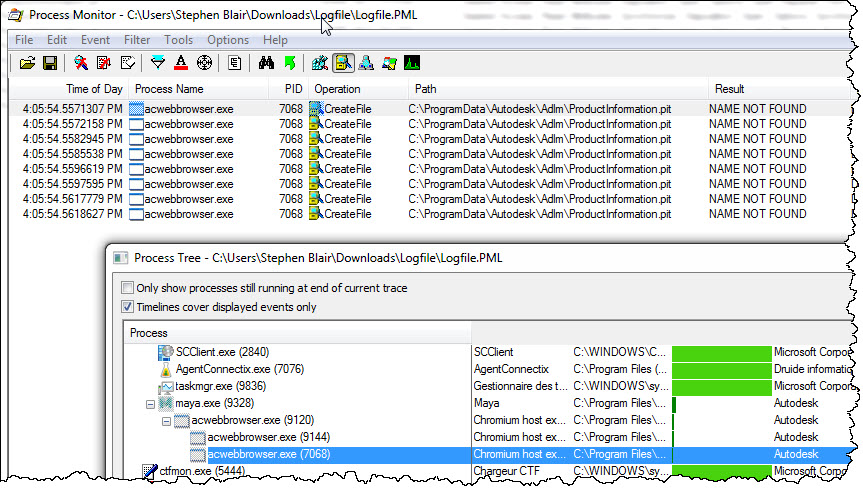Or, “things that happen when you use single-user licensing on a render node” 😉
In this case, a Houdini command-line render with Arnold (HtoA) failed because the AdskLicensingAgent failed to start.
--------------------------- AdskLicensingAgent --------------------------- This application failed to start because no Qt platform plugin could be initialized. Reinstalling the application may fix this problem. Available platform plugins are: minimal, offscreen, webgl, windows. --------------------------- OK ---------------------------
After AdskLicensingAgent crashed, the render would continue, but license authorization would fail:
00:00:00 148MB | authorizing with license manager: user ... 00:00:31 153MB WARNING | rendering with watermarks because of failed authorization: 00:00:31 153MB | [clm.v2] timeout before callback was called
Using Process Monitor, I saw (as expected) that the problem was that the AdskLicensingAgent was loading Qt platform plugins from Houdini:

The solution? Set QT_QPA_PLATFORM_PLUGIN_PATH to point to the AdskLicensingAgent\platforms folder.
set QT_QPA_PLATFORM_PLUGIN_PATH=C:\Program Files (x86)\Common Files\Autodesk Shared\AdskLicensing\Current\AdskLicensingAgent\platforms







